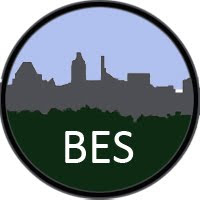Urban Ecology: Knowing or Making?
Our friend and colleague, Alex Felson, of the Yale School of Architecture and the Yale School of Forestry and Environmental Studies has a unusual perspective on what urban ecology is […]
This author has not written his bio yet.
But we are proud to say that John Lagrosa contributed 130 entries already.
Our friend and colleague, Alex Felson, of the Yale School of Architecture and the Yale School of Forestry and Environmental Studies has a unusual perspective on what urban ecology is […]
The human ecosystem concept is one of the most common tools used in the Baltimore Ecosystem Study LTER. Adopted from a team of social ecologists and sociologists who were involved […]
A while ago I wrote about Jane Jacobs’ insight that cities were complex systems[i]. The stone that she dropped in the urban pond in 1961 has rippled widely, and the […]
The transformation of the Earth’s human population to a predominantly urban home is one of the major milestones of the 21st century. While urbanization in industrialized regions such as the United […]
The posts here often discuss conceptual issues, ideas and empirical insights, and opportunities for learning and communication that can promote the science, education, and community engagement of the Baltimore Ecosystem […]
In order to plan for the next phase of BES, we are beginning to consider theoretical frameworks. Here is the current status of that search. A Multitude of Urban Theories. […]
Famously Rampant Urbanization This last summer, I had the pleasure of being hosted as a Visiting International Professor by the Research Center for Eco-Environmental Sciences in Beijing. This center is […]
The previous Book of the Year focused on bio-ecological theory. Because BES is a social-ecological research and education endeavor, the Project Management Committee agreed that this year our book should […]
A lot of effort in urban ecological science around the world is now focused on the process of urbanization. This is reasonable because the demographic, social, environmental, and economic shifts […]
I borrowed that statement from Tim Allen, Professor Emeritus at the University of Wisconsin. Tim is a colleague of long standing, and I think he’s one of the best thinkers […]
This research was supported by funding from the NSF Long-term Ecological Research (LTER) Program. This material is based upon work supported by the National Science Foundation under Grant Nos. DEB-1637661 and DEB-1855277. Any opinions, findings, and conclusions or recommendations expressed in this material are those of the author(s) and do not necessarily reflect the views of the National Science Foundation.
The Baltimore Ecosystem Study has been a National Science Foundation Long Term Ecological Research (LTER) site since 1998. Visit other LTER sites.
 |
 |
